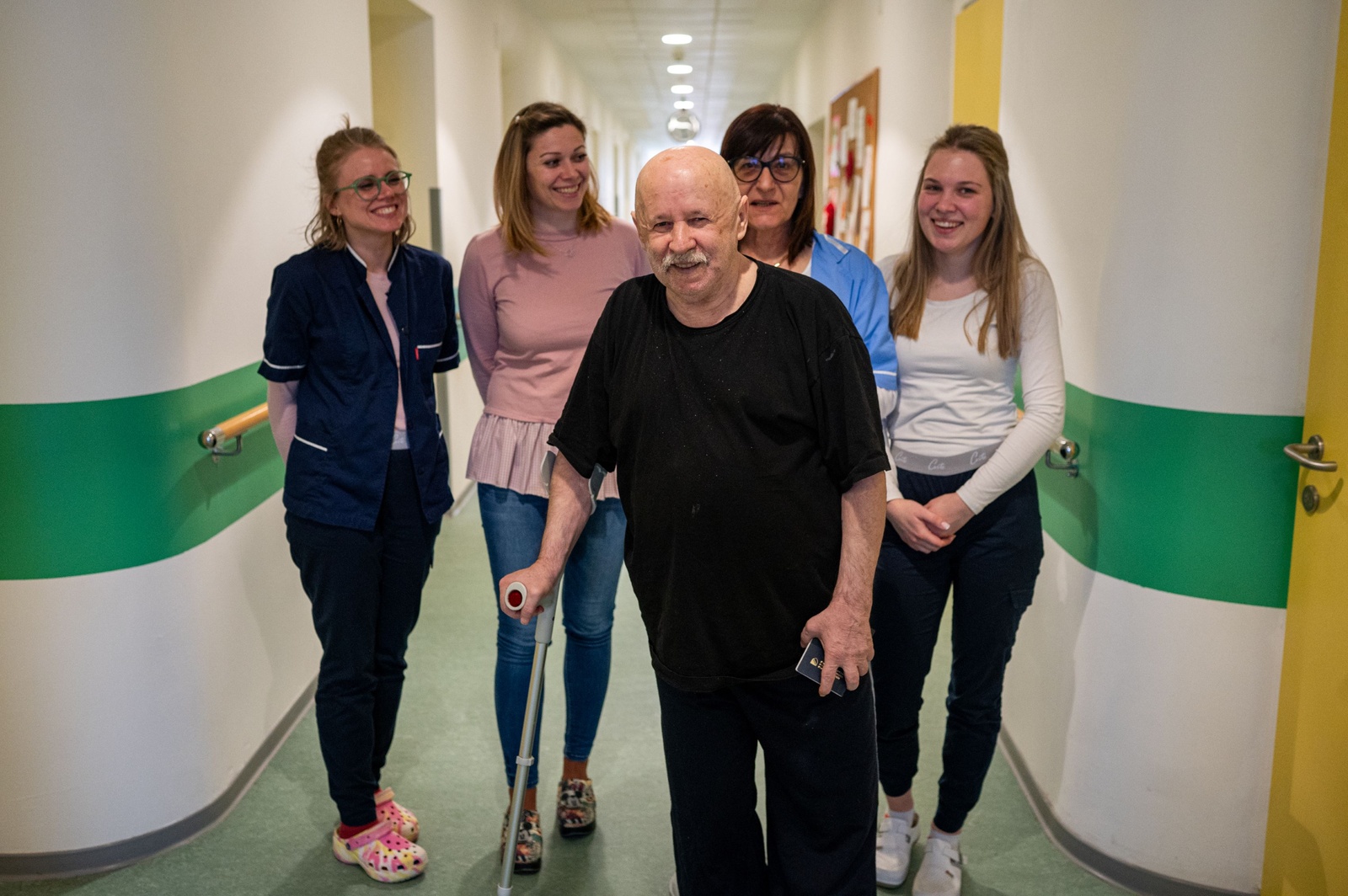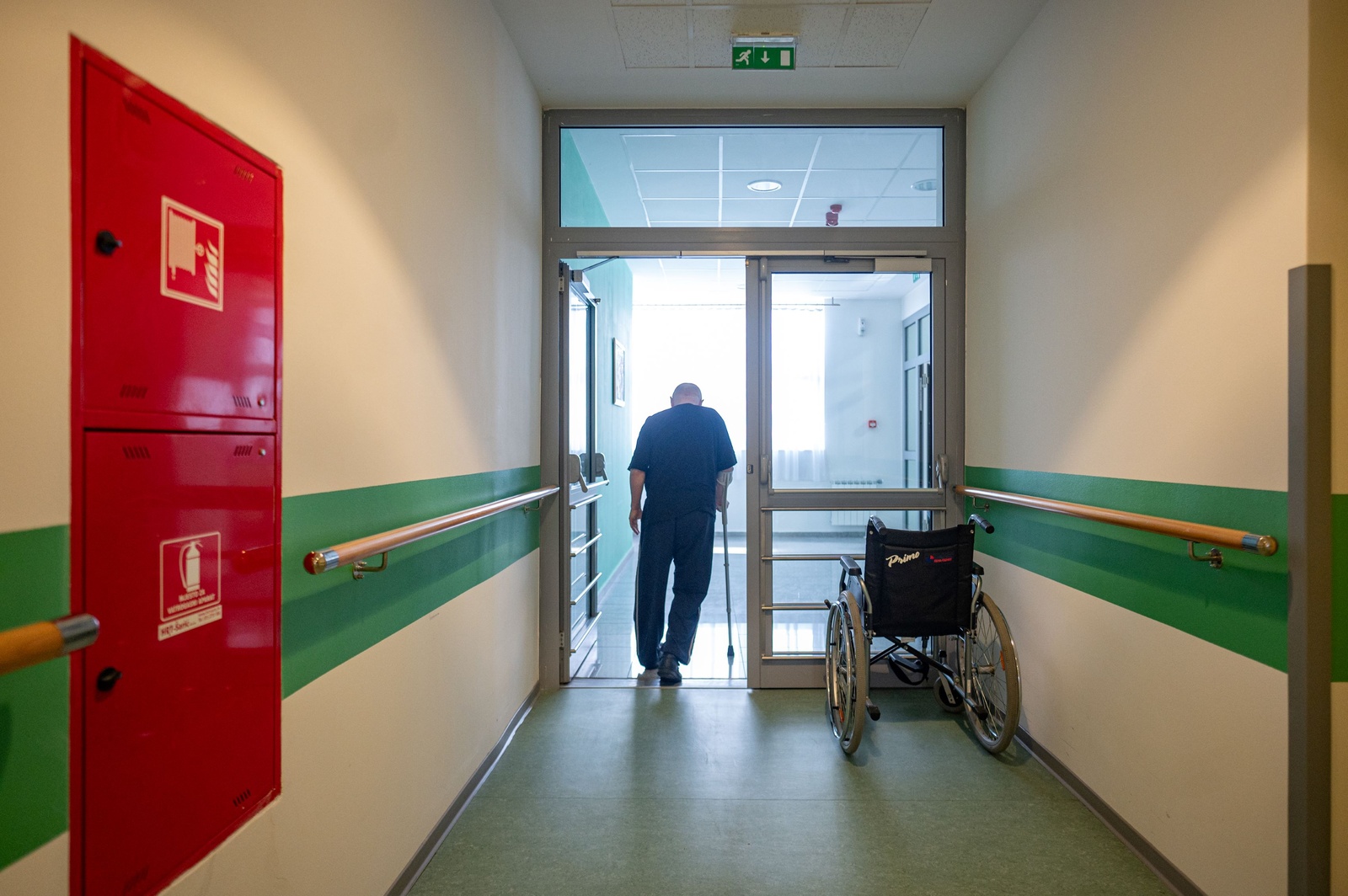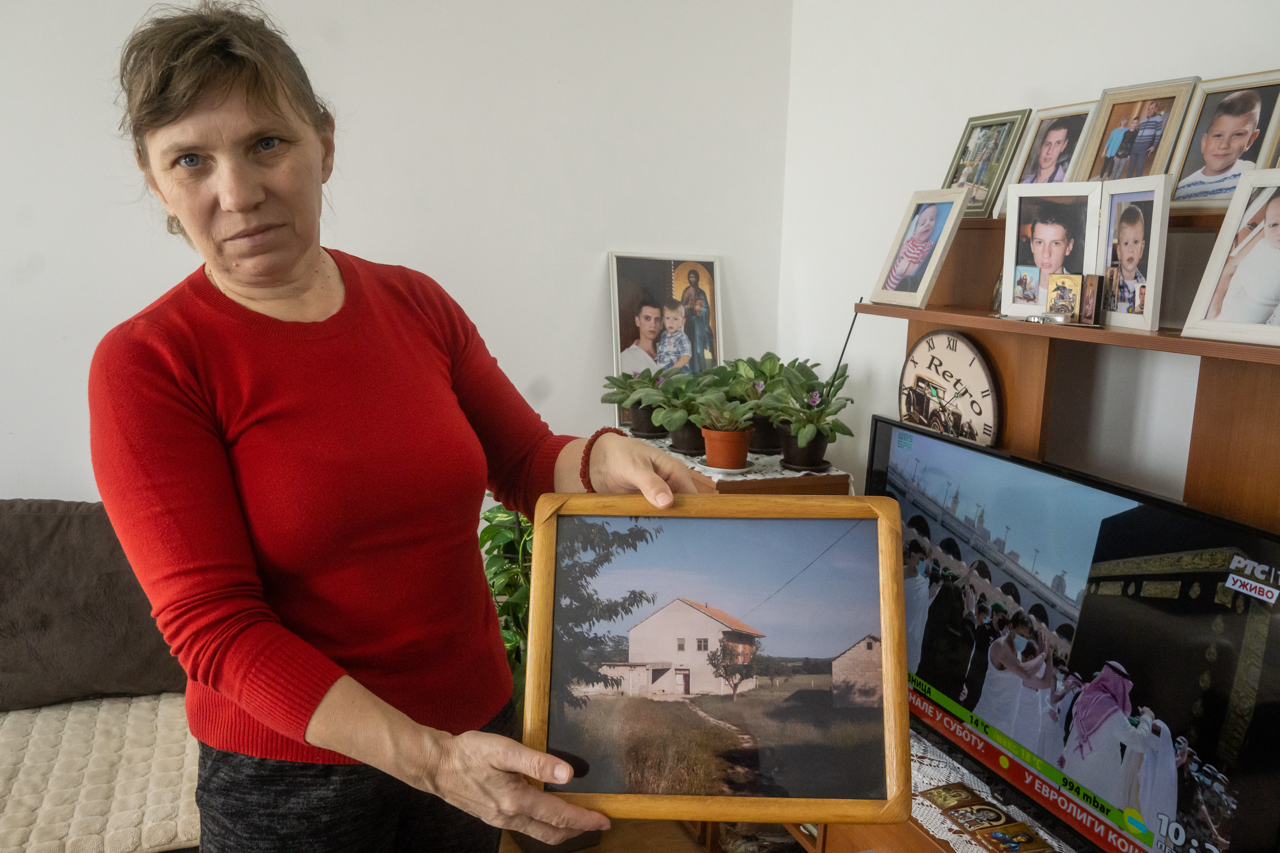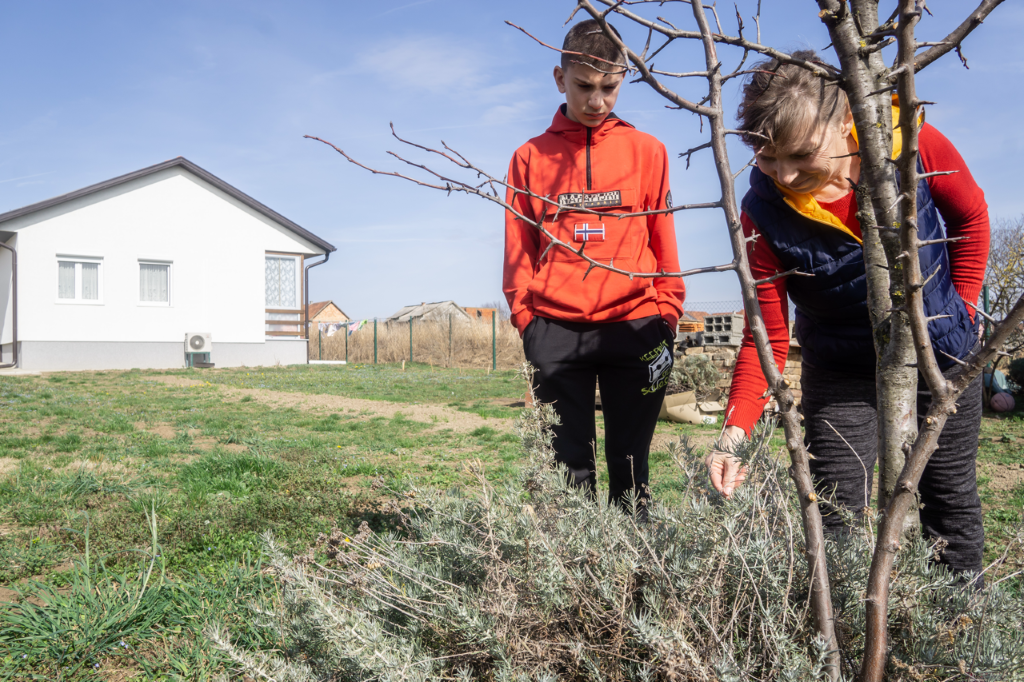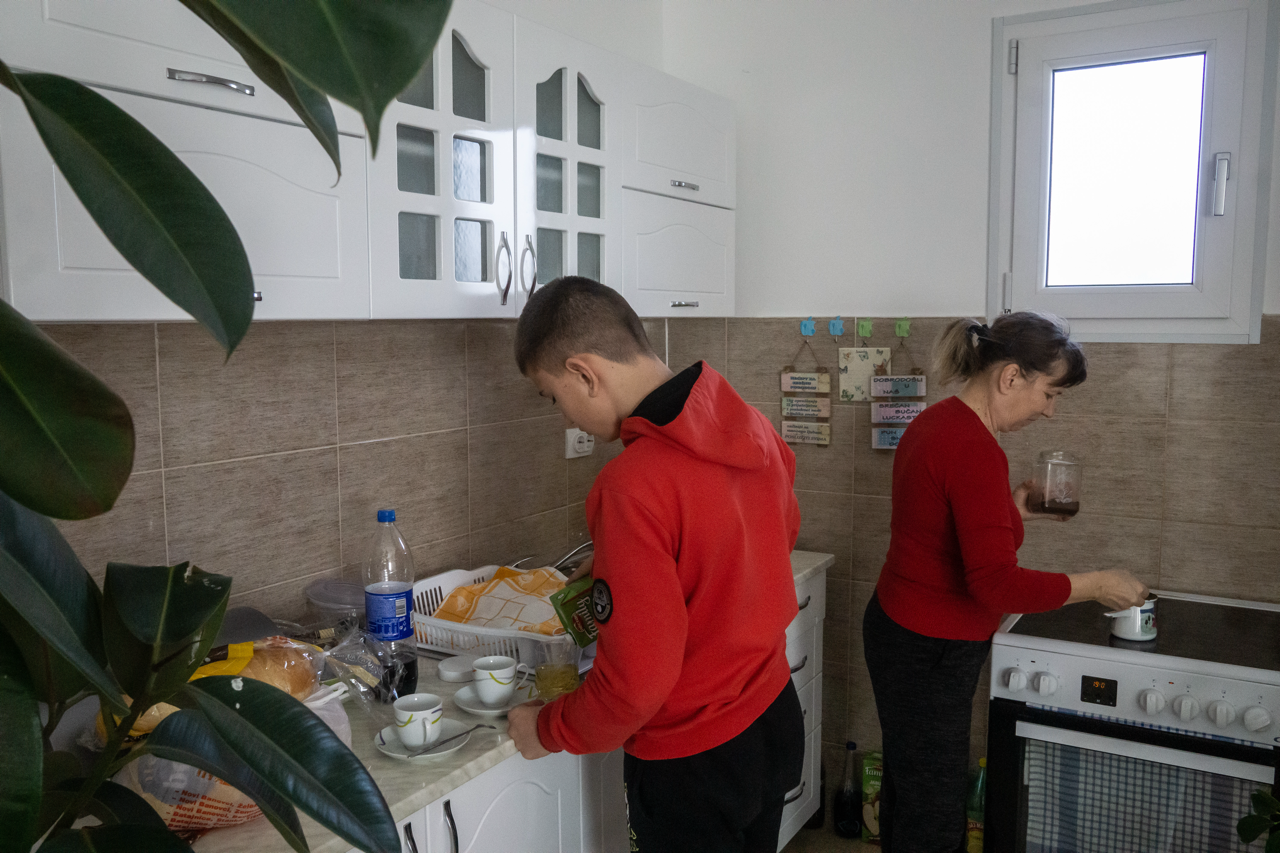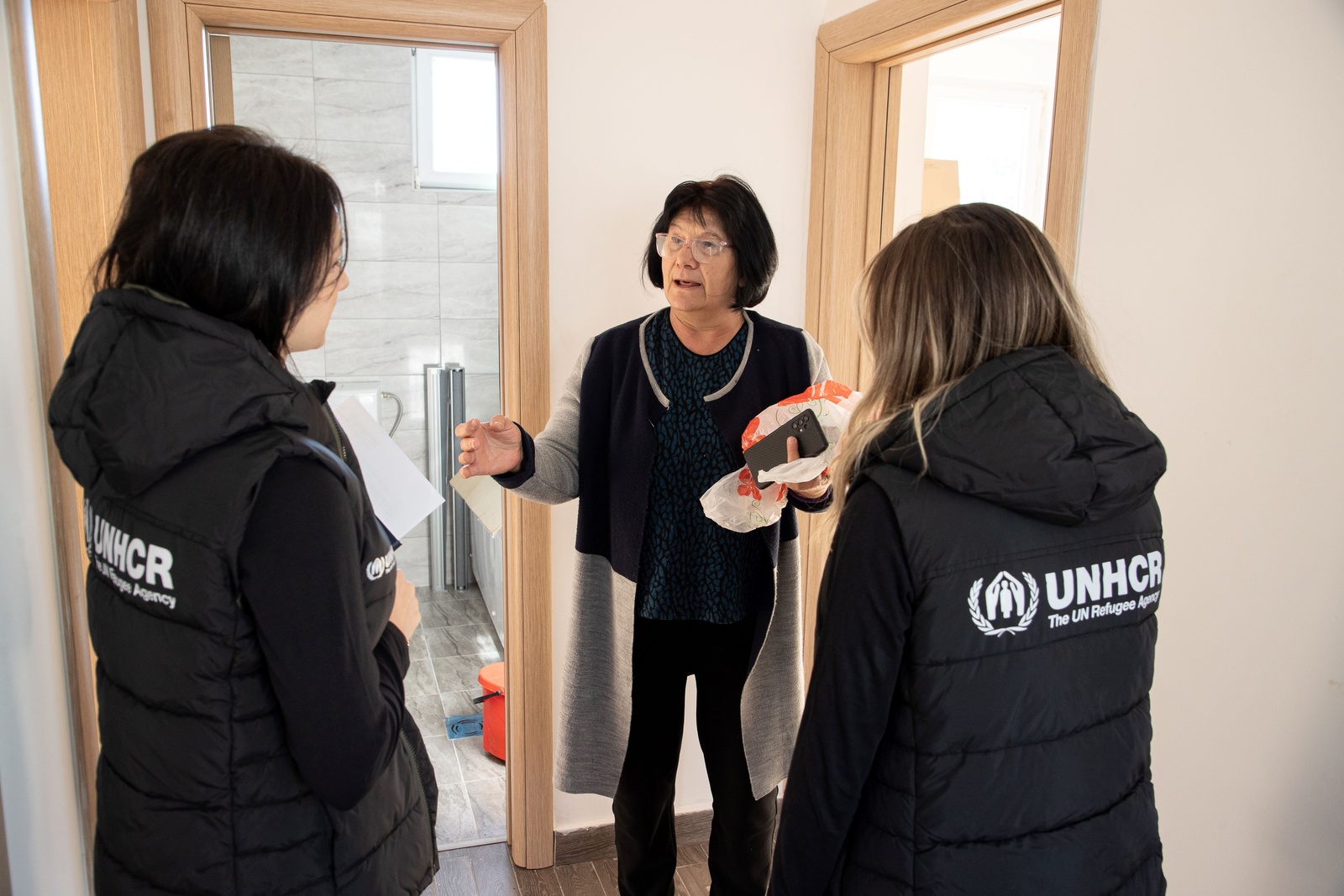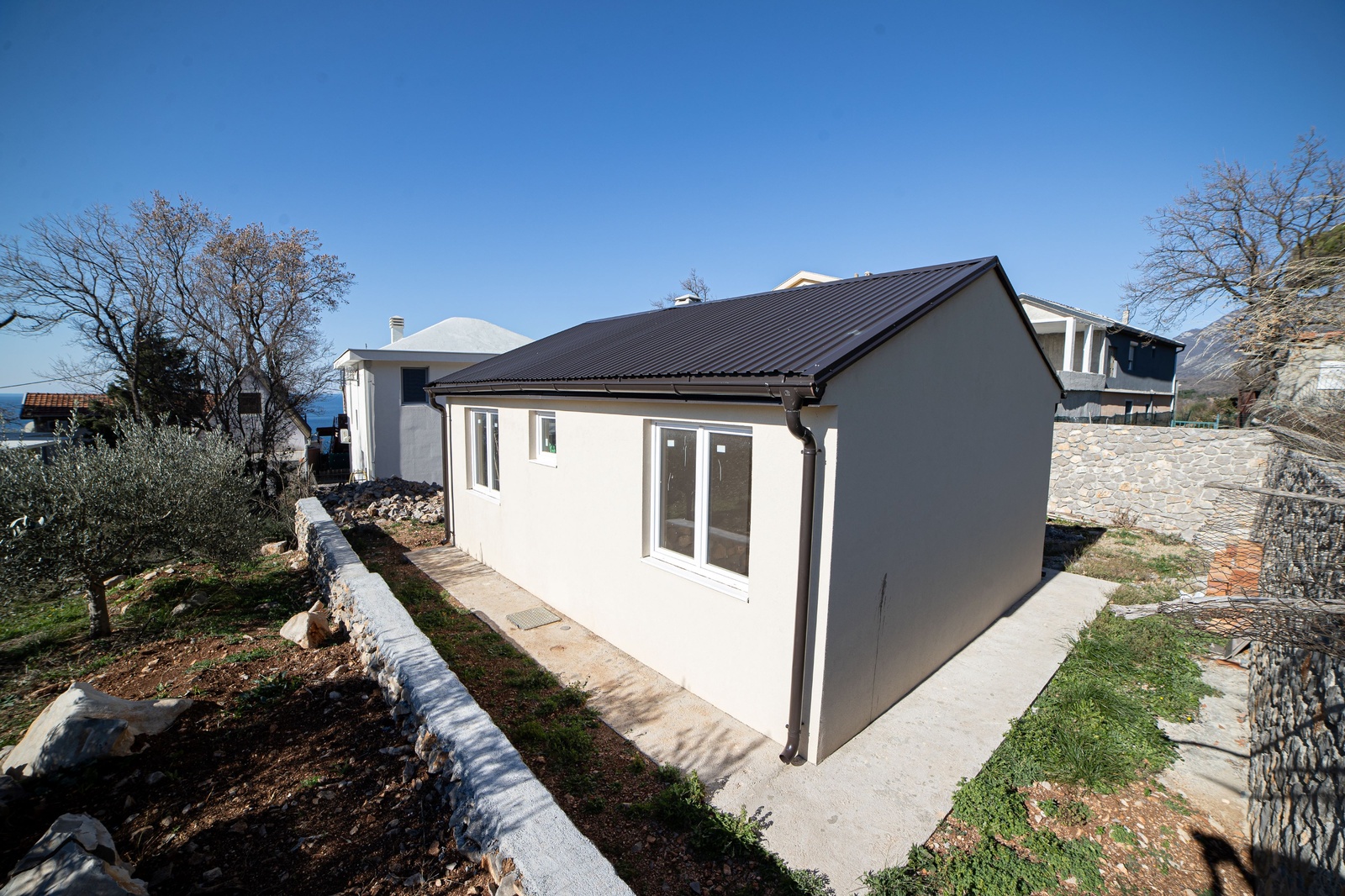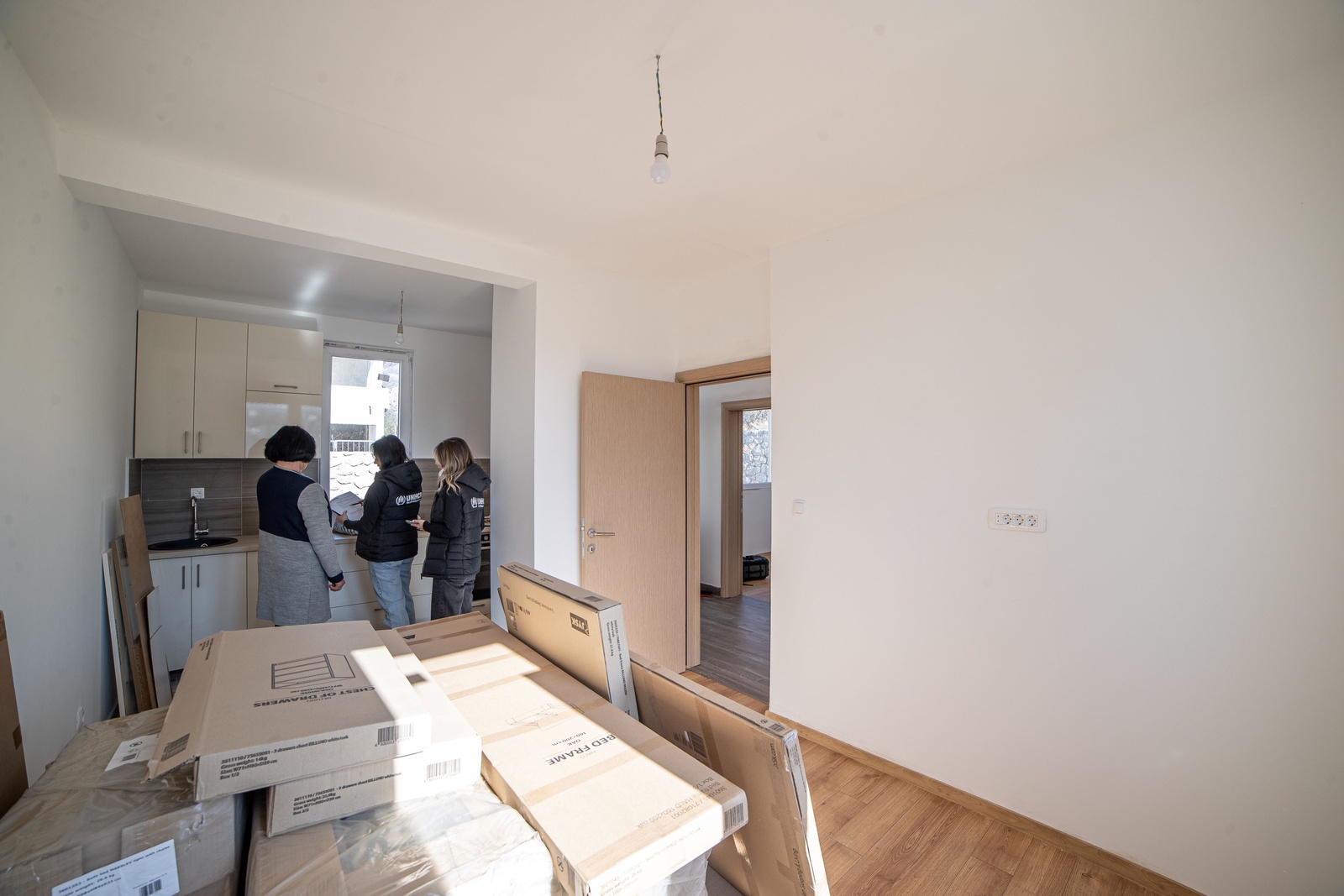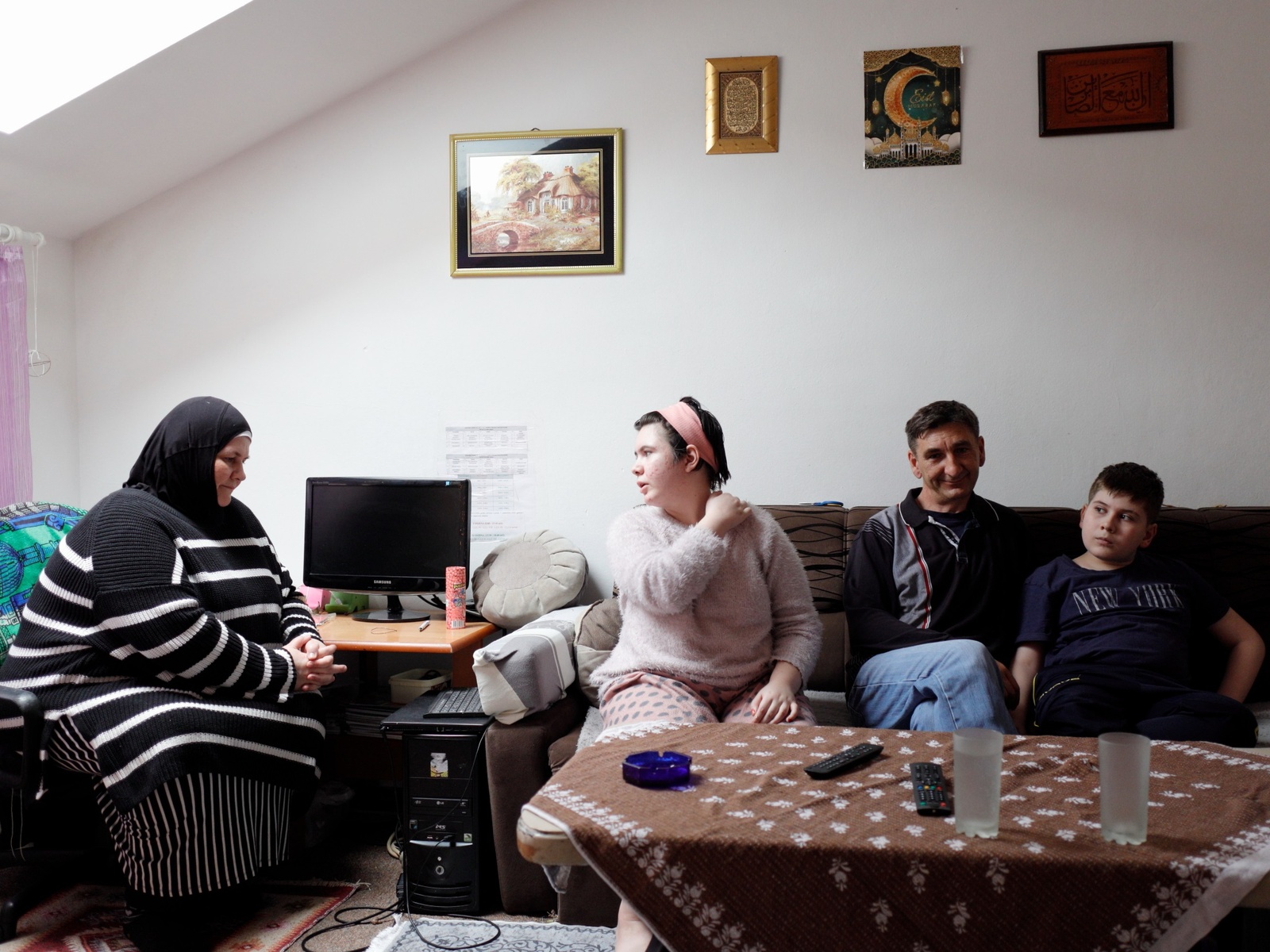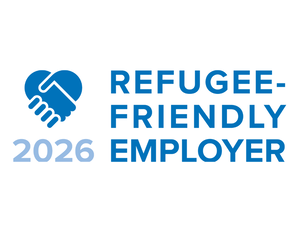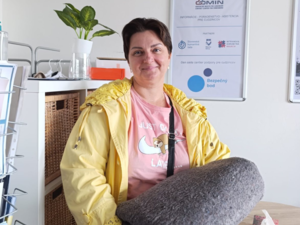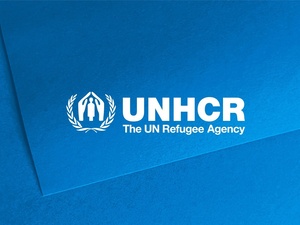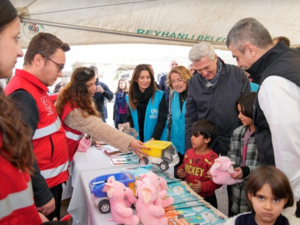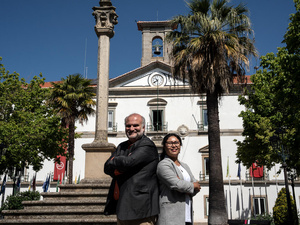A life-changing solution for refugees and displaced people in the former Yugoslavia
A life-changing solution for refugees and displaced people in the former Yugoslavia

After he fled the war in Bosnia and Herzegovina in 1993, Bego found a new home in the Home for Older People in Glina, Croatia, reconstructed through the Regional Housing Programme.
When the Regional Housing Programme (RHP) was established in 2012 in Bosnia and Herzegovina, Croatia, Montenegro, and Serbia, the primary goal of the initiative was to provide durable and sustainable housing solutions to the most vulnerable refugees and internally displaced people after the 1990s violent dissolution of the former Yugoslavia.
While the majority of those displaced by the conflicts had been able to return home or find other durable solutions, almost half a million people remained displaced throughout the region at the time of launching the RHP.
Over more than a decade, the RHP, a partnership between the Governments in the four countries, the European Commission, the Council of Europe Development Bank (CEB), the Organization for Security and Cooperation in Europe (OSCE), the UN Refugee Agency (UNHCR), and donors led by the European Union (EU), delivered over 11,000 housing units to around 36,000 forcibly displaced people in the affected countries. The Programme concluded in November 2023.
The following is a selection of four stories of people who benefited from the Regional Housing Programme.
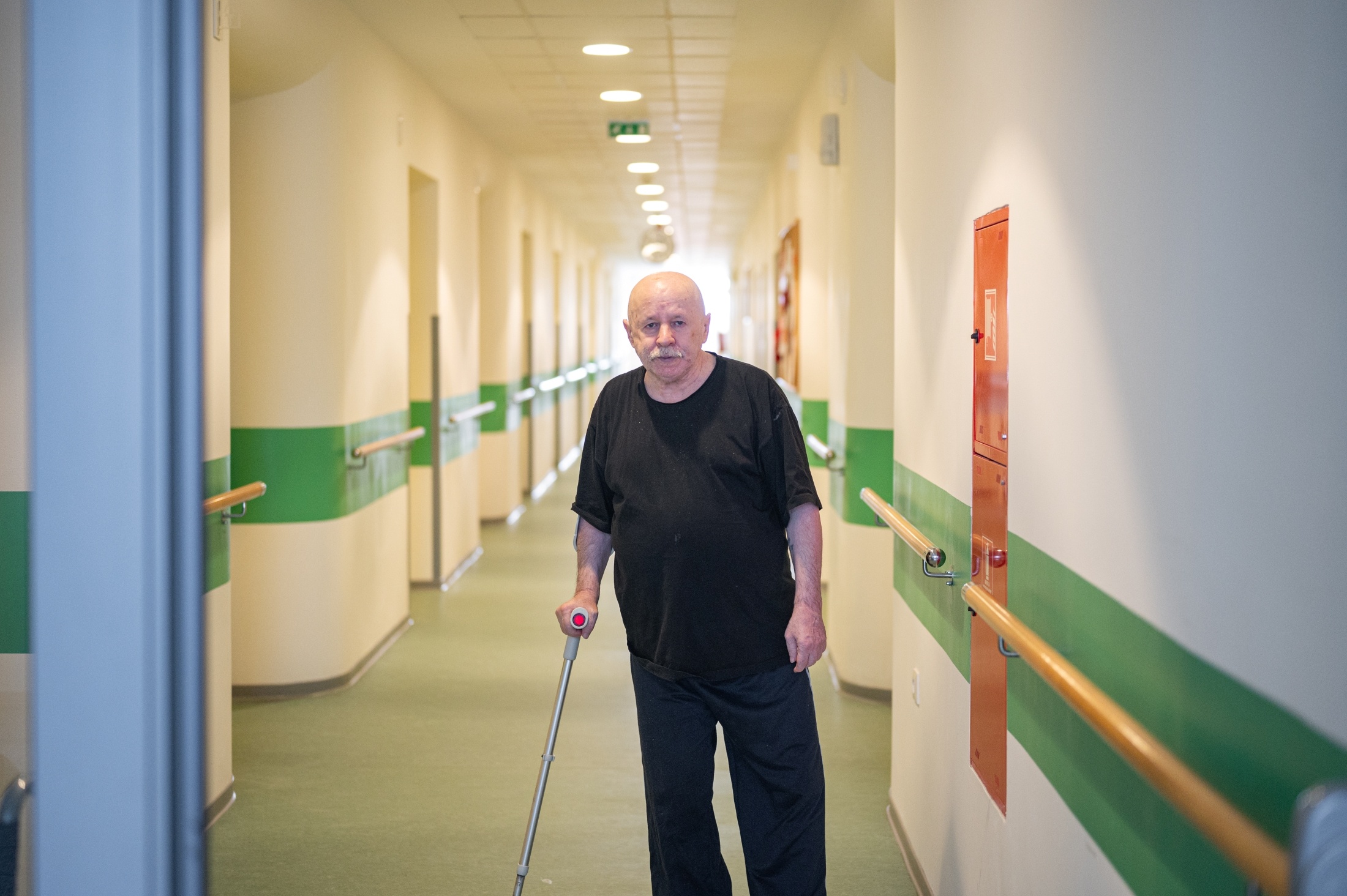
After he fled the war in Bosnia and Herzegovina in 1993, Bego found a new home in the Home for Older People in Glina, Croatia, reconstructed through the Regional Housing Programme.
Bego, 66, fled the war in Bosnia and Herzegovina, and sought refuge in Croatia in 1993, only to find himself navigating the challenges of life in refugee centres for almost a quarter of a century, lacking the adequate care or support he needed as a person with a disability.
Without any family or support system to turn to, Bego found himself in a situation where he could not manage to live independently anymore.
Despite these hardships, his spirit remained unbroken. In 2018, a glimmer of hope emerged when he was offered the stable and supportive living environment at the Home for Older People in Glina, Croatia, reconstructed with support from the Regional Housing Programme (RHP).
Now Bego's days are filled with simple joys that were once distant dreams – proper care, access to a good health system, warm meals, and the companionship of fellow residents.
“The accommodation provided through the Regional Housing Programme offers access to support services tailored to my needs, allowing me to live comfortably and confidently. Having access to such assistance has been invaluable in restoring my overall well-being”, he says.
“This programme means life to me. It has not only saved my life but has also had a profound impact on the quality of my life. By providing me with a safe home, it gave me the opportunity to live what remains of my life with dignity.“

Ljubinka, 54, left, with her son David in front of their house in Serbia, which was provided by the Regional Housing Programme, a joint initiative to support refugees and displaced people from the conflicts in the former Yugoslavia.
Just hours before the bombing started in the town of Benkovac, Croatia in the summer of 1995, Ljubinka, then 25, her 1-year-old son, and a couple of friends managed to flee the country. After several days on the run, Ljubinka was able to reunite with her husband and parents in the neighbouring country of Bosnia and Herzegovina.
However, as the weeks passed, the family realized they would not be able to return home. So when aid workers offered them a ride to Serbia, they accepted. Ljubinka and her family ended up in a suburb of Belgrade where they stayed with relatives who were living there.
“This period [of our lives] was extremely difficult and stressful. It was a completely new environment; everything was so overwhelming. Never had I imagined I would have to leave my hometown”, Ljubinka recalls.
In 2001, her husband found a job, which allowed them to rent a damp basement flat in Novi Banovci, a village located close to the Danube River, some 20km from Belgrade. “We stayed there for the next 20 years and were unable to afford better accommodation, even though we saved every penny we earned.”
“The community welcomed us though, and we slowly weaved the threads of our new lives here. Then our long-awaited second son David was born”, she says. He is now in the sixth grade at the local school where he enjoys learning the French language and playing football.
In 2016, Ljubinka took out a bank loan and bought five acres of land on the outskirts of their adopted village in Serbia. When the Serbian government announced a call for housing solutions named the Regional Housing Programme (RHP), Ljubinka and her husband prepared the necessary documents and applied for their new home.
“The selection process of the RHP was long, but we persisted so that we could be considered eligible for a pre-constructed house. When it was approved, we were overjoyed. The construction went quickly, and we finally moved in in early 2022”, says Ljubinka with a smile.
“The house is everything I wished for. I even have a garden where I’ve planted flowers. This is my oasis, where I feel happy and at peace.”
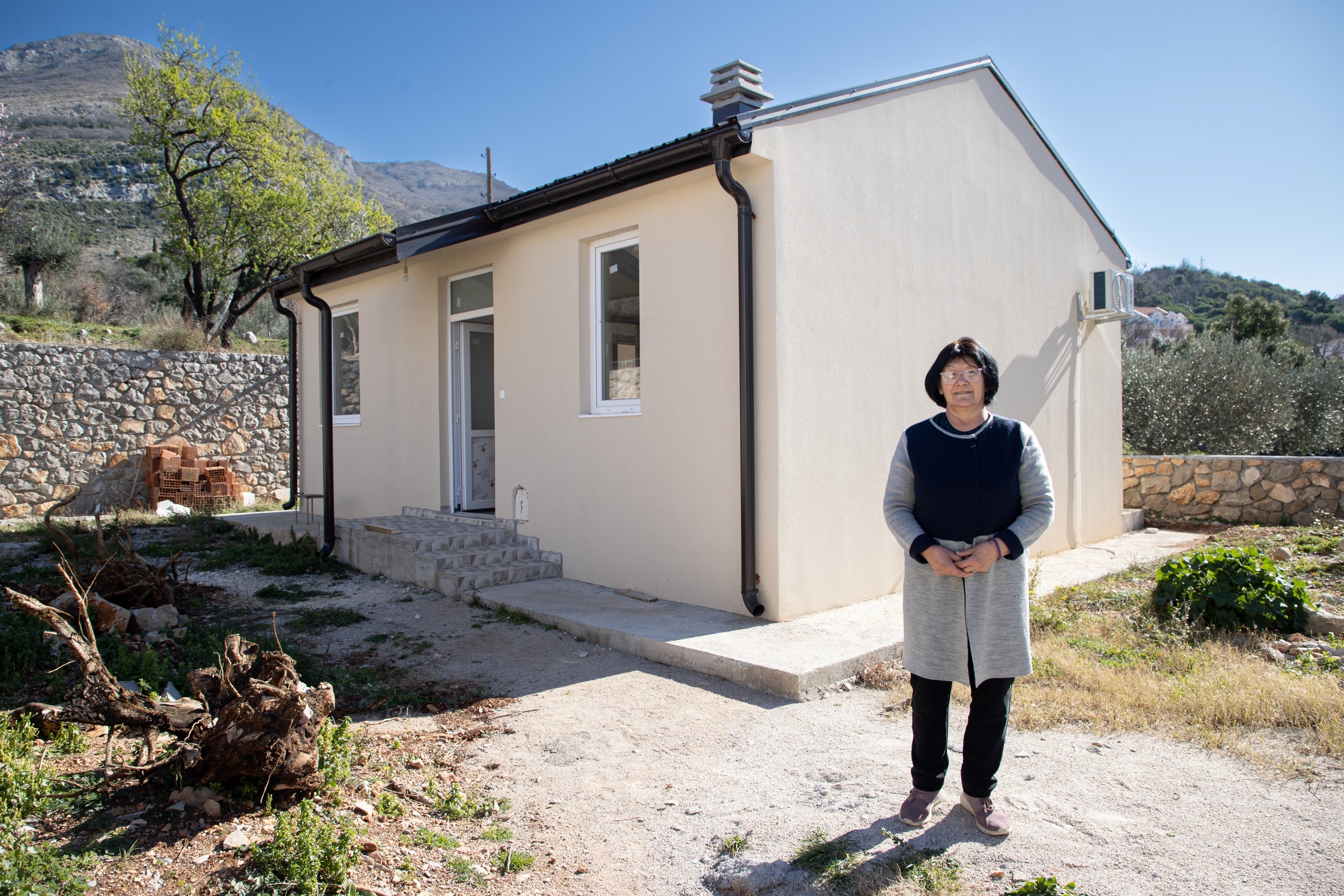
Senka received her new home in 2023 through the Regional Housing Programme, a joint initiative to support refugees and displaced people from the conflicts in the former Yugoslavia.
Senka, 68, is an undeniable optimist who is now retired and is living in Bar, a coastal town in southern Montenegro. She fled Croatia with her husband and two children in 1995 - first to Serbia, then a year later, to Montenegro.
She recalls the challenging journey of finding a new place to call home, and the apartment she and her family lived in at the time, which was outdated and substandard. "It hurts even now when I remember my children coming from school to our dilapidated house and them telling me stories of how their peers lived in nice, cozy houses or apartments”, Senka says.
However, in 2022, Senka and her family’s reality completely changed when the construction of their house began under the Regional Housing Programme (RHP). The following year, she received the keys to her new house.
“I cannot express my gratitude and happiness to all the people who helped us get our new home. It’s been almost a dream come true, a real-life fairytale. My family and I have a roof over our heads, here in this coastal city. Instead of fear and uncertainty, I feel the fresh sea breeze every morning when I wake up.”
Today, she enthusiastically welcomes guests to show them around her new house and shares her plans for interior design. Senka also looks forward to obtaining Montenegrin citizenship.
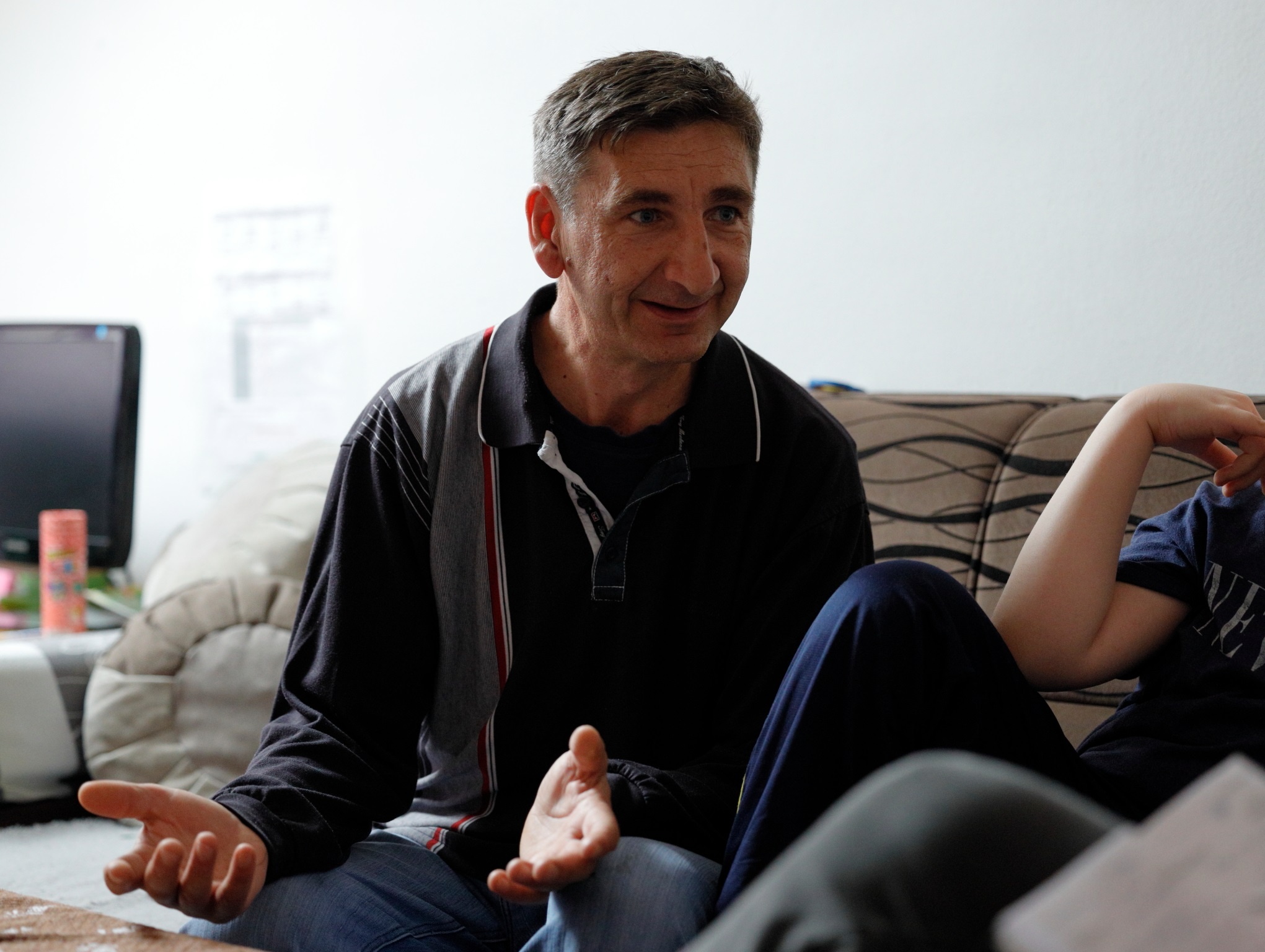
Anes, 50, at his home in Sarajevo, Bosnia and Herzegovina, provided by the Regional Housing Programme, a joint initiative to support refugees and displaced people from the violence in the former Yugoslavia.
Shortly after the war broke out in Bosnia and Herzegovina in 1992, Anes, together with his brother and mother left their family home in the town of Trnovo in Central Bosnia.
The family first sheltered in their aunt’s apartment nearby, where they at one point were among 18 other people sharing the very small space.
Between the years of 1992 and 2008, Anes moved more than 15 times, mostly living in rented apartments or dilapidated houses, some of which had been abandoned by other people who had fled the violence in the former Yugoslavia. Whenever the owner of a flat or house would return to reclaim the property, he would have to move out.
Today, Anes now 50 years old, has his own family - Selma, his wife and two children, a 14-year-old daughter and an 11-year-old son. For many years, the family lived in constant uncertainty without knowing when they might be forced to move.
In 2016, Anes decided to take his fate into his own hands, and approached the Institution of the Human Rights Ombudsmen in Bosnia and Herzegovina, claiming that the human rights of his family were violated in view of the unbearable conditions they had to live in after the conflicts.
The Ombudsmen looked into his case and promptly intervened on his behalf with the local authorities. As a result, the city of Ilidža on the outskirts of Sarajevo informed him that thanks to the funds provided by the Regional Housing Programme (RHP), an apartment building would be built for the people who had been forced to flee their homes during the violence in the 1990s, and that he may have a chance to secure a flat himself. “I was the happiest man on earth the day my family and I moved into our brand-new apartment in 2018”, he says.
Life is still challenging for Anes and his family. His daughter Sara developed a serious case of encephalitis, and attends a special education institution in Sarajevo where Anes drives her every day. In the meantime, he works at a construction site, and the family is barely able to make ends meet.
Nonetheless, Anes says he is finally happy with his home.
“I spent my whole life moving from one place to another… finally, we are living with our own four walls, not fearing that someone will show up one day, and tell us to leave. We can sleep in peace.”



